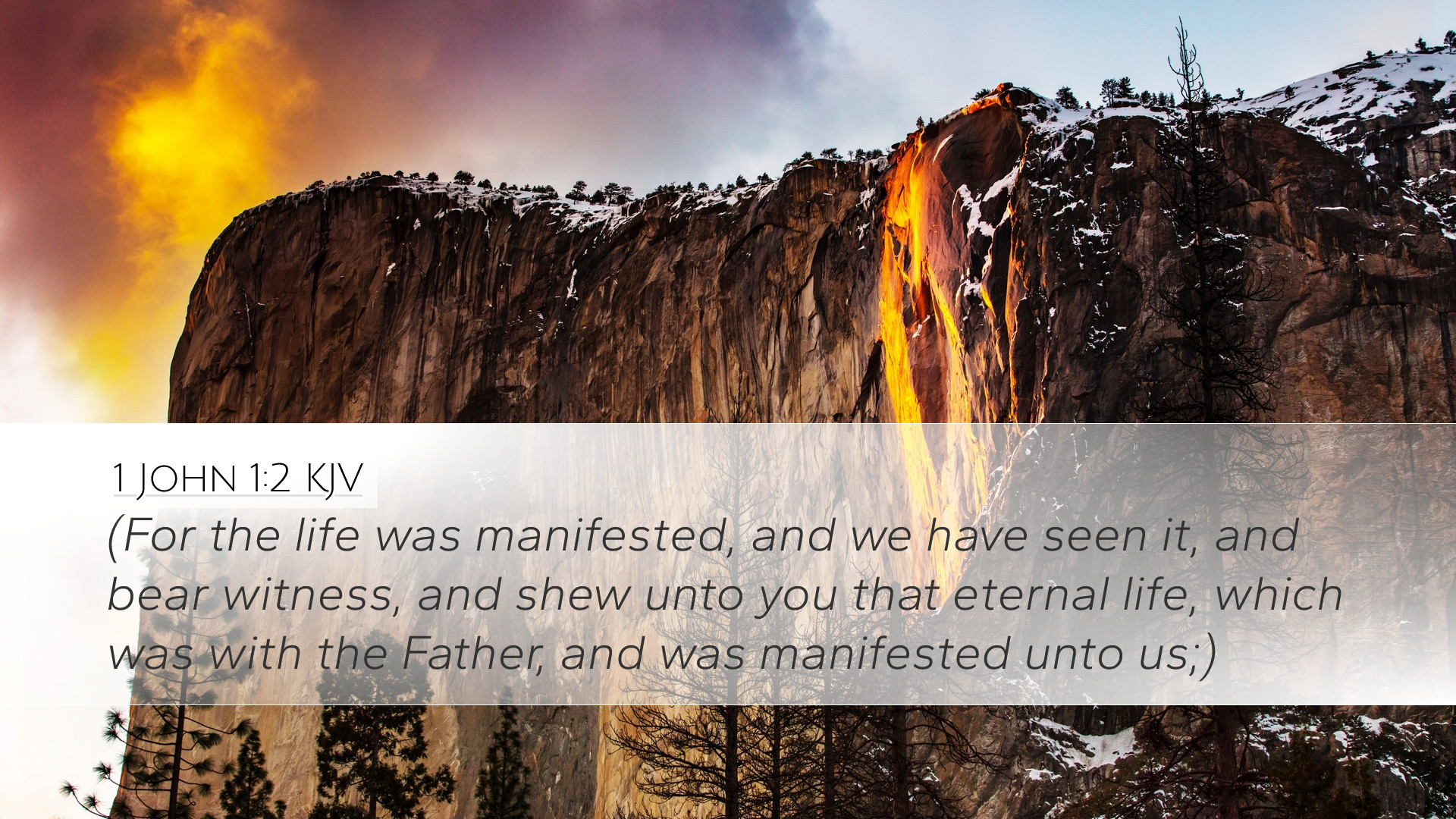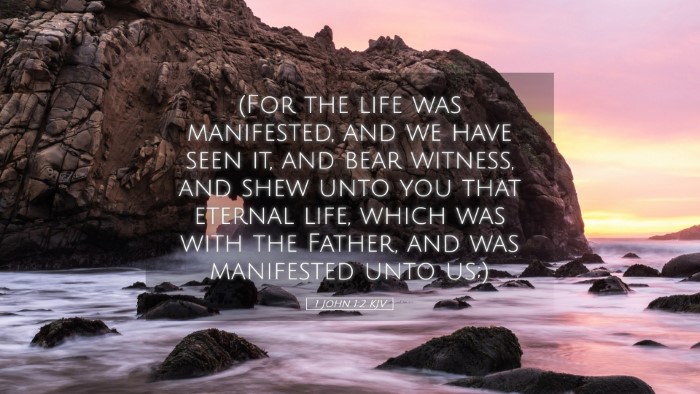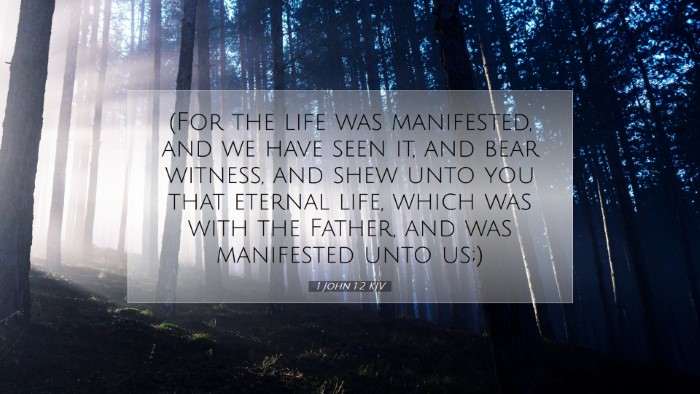Old Testament
Genesis Exodus Leviticus Numbers Deuteronomy Joshua Judges Ruth 1 Samuel 2 Samuel 1 Kings 2 Kings 1 Chronicles 2 Chronicles Ezra Nehemiah Esther Job Psalms Proverbs Ecclesiastes Song of Solomon Isaiah Jeremiah Lamentations Ezekiel Daniel Hosea Joel Amos Obadiah Jonah Micah Nahum Habakkuk Zephaniah Haggai Zechariah Malachi1 John 1:2
1 John 1:2 KJV
(For the life was manifested, and we have seen it, and bear witness, and shew unto you that eternal life, which was with the Father, and was manifested unto us;)
1 John 1:2 Bible Commentary
Commentary on 1 John 1:2
Verse Text: "For the life was manifested, and we have seen it, and bear witness, and show unto you that eternal life, which was with the Father, and was manifested unto us."
Introduction
The opening of 1 John presents foundational truths about the incarnation of Christ, his divine nature, and the implications of this reality on our understanding of eternal life. In 1 John 1:2, the Apostle John reveals significant theological truths that address both the person of Christ and the experience of believers.
The Manifestation of Life
“For the life was manifested...”
John employs the term "life" to signify the essence of Christ, emphasizing that true life is found in Him. Matthew Henry notes that this life refers not merely to existence but to a divine quality of life that encompasses holiness, righteousness, and immortality. It is essential to recognize that this life was not hidden but was revealed openly among men.
Eyewitness Testimony
“...and we have seen it, and bear witness...”
Here, John asserts the firsthand experience of the apostles as witnesses to the life of Christ. Albert Barnes highlights the significance of the apostolic witness, illustrating that the early church relied on this direct testimony. Their eyewitness account provides a trustworthy foundation for the Christian faith, confirming the historical reality of Jesus’ life and ministry.
The Nature of Eternal Life
“...and show unto you that eternal life, which was with the Father...”
John connects the manifestation of life with the concept of eternal life. Adam Clarke elaborates on the concept of eternal life, indicating that it is not merely a future promise but a present reality for believers. This life is intimately tied to the Father, suggesting a pre-existing relationship that speaks to the eternal nature of Christ.
Christ, the Revelation of the Father
“...and was manifested unto us.”
This phrase underscores the idea that Jesus is the ultimate revelation of God to humanity. Matthew Henry explains that the manifestation of Christ was not only a display of His divine attributes but also a direct approach to mankind's need for redemption. The incarnation is an act of grace where God draws near to humanity through His Son, fulfilling His promise of salvation.
Theological Implications
-
The Assurance of Salvation:
In recognizing that eternal life is present in Christ, believers can find assurance of their salvation. The experiential knowledge of Christ, as emphasized by Barnes, assures us that eternal life is not just a distant hope but a secure reality that shapes the believer's present life.
-
The Call to Witness:
The testimony of the apostles serves as a model for our own witness. Clarke notes that believers are also called to communicate this life to others. Just as John testifies, we too have a responsibility to bear witness to the transformative power of Christ in our lives.
-
The Nature of Community:
John’s emphasis on the collective experience of seeing and bearing witness hints at the communal aspect of faith. The shared life among believers is a reflection of the life that was manifested in Christ. This calls us to foster community aligned with the teachings and example of Jesus.
Conclusion
1 John 1:2 encapsulates profound theological truths surrounding the incarnation of Christ and the gift of eternal life. Through these brief yet rich phrases, John establishes a solid foundation for understanding the nature of Christ, the role of the apostles, and the implications for believers today. As pastors, students, theologians, and Bible scholars, we are invited to explore these depths and share this transformative truth with the world.


